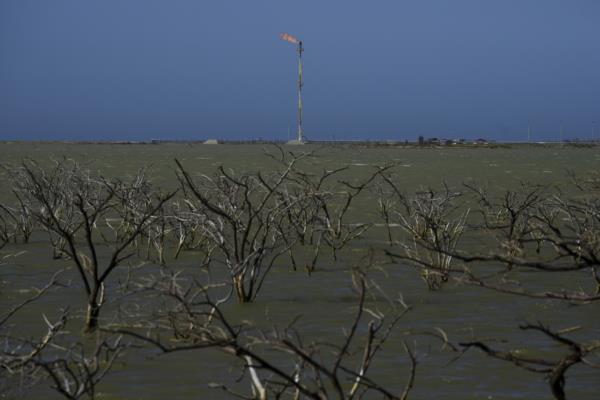
Giant wind turbines loom over a sacred cemetery in Cabo de la Vela, Colombia, home to the Indigenous Wayuu community. The La Guajira region, known for its arid landscape and potential for renewable energy, has become a battleground between multinational companies, the government, and the Wayuu people.
The Wayuu community, concerned about environmental and cultural impacts, has resisted many proposed wind and solar energy projects due to lack of prior consultation. Despite the region's potential to generate significant wind energy, tensions have escalated over the construction of the La Guajira 1 wind farm near the sacred cemetery.

















While some Wayuu families have accepted financial assistance and housing from the companies, others, including Wayuu leaders, remain staunchly opposed. The clash between economic development and cultural preservation has caused internal friction within the community.
Colombia's government has committed to respecting Indigenous rights and ensuring prior consultation on projects affecting Indigenous territories. However, the push for renewable energy projects in La Guajira has sparked concerns about potential conflicts and the need for community-company agreements.
As Colombia aims for a just energy transition to replace fossil fuels with renewables, the Wayuu community's resistance highlights the complex challenges of balancing economic development with cultural preservation and environmental protection.
With offshore wind farm plans also facing opposition from traditional fishers, known as Apalanchii, the government must navigate the delicate balance between energy development and Indigenous rights.
As the Wayuu people continue to defend their territory and cultural heritage, the future of renewable energy projects in La Guajira remains uncertain, with stakeholders calling for greater dialogue and respect for Indigenous autonomy.
Overall, the situation in Cabo de la Vela underscores the broader global challenge of addressing climate change while respecting Indigenous communities and their traditional ways of life.







